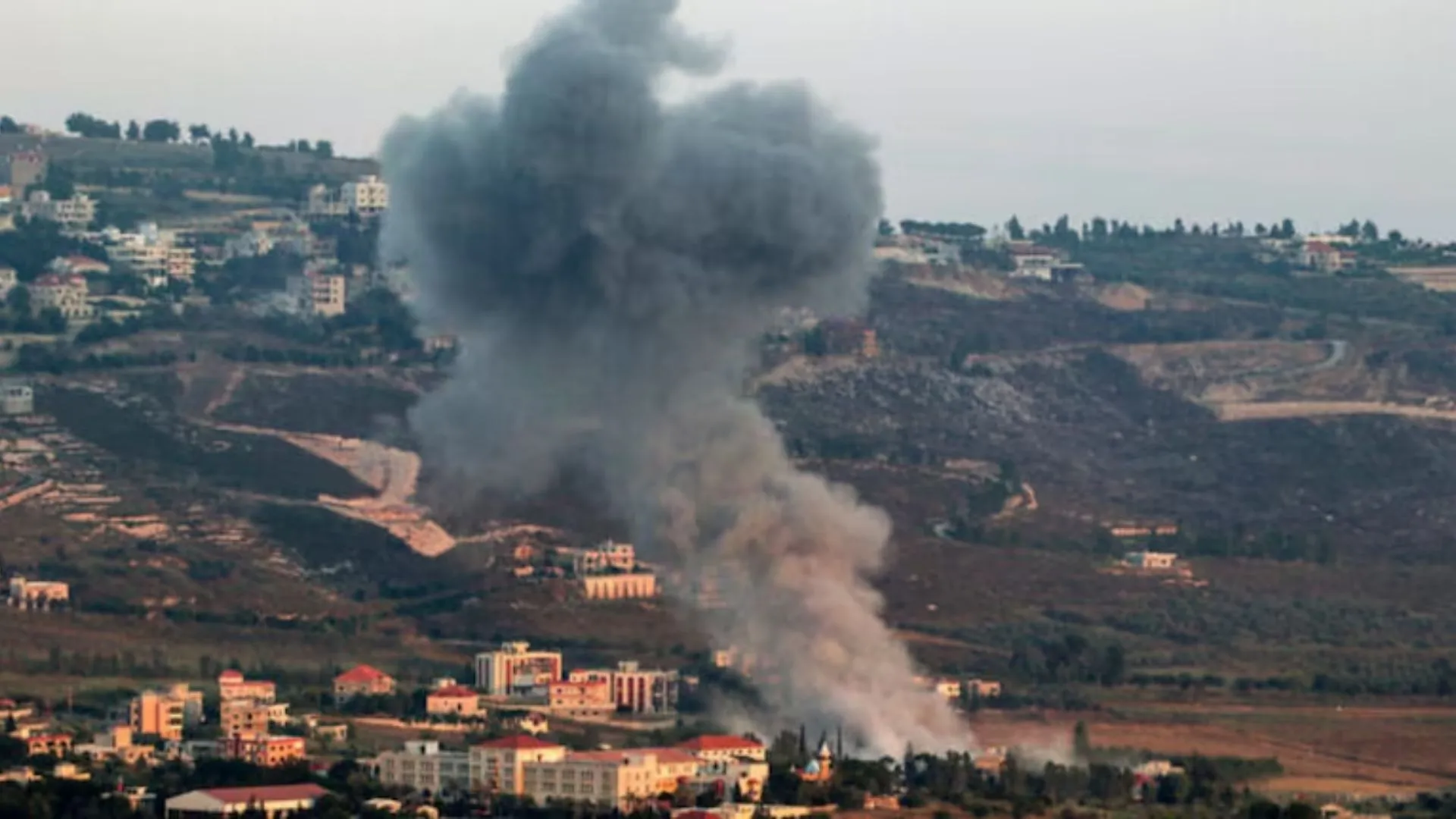In the early hours of Monday, Hezbollah rockets hit Haifa, Israel’s third-largest city, causing damage to buildings and leaving several people injured. Israeli police confirmed the strikes, and local media reported that at least 10 people were injured in the country’s northern region. The majority of the injuries were minor, and several of the injured individuals were transported to a nearby hospital for treatment.
Hezbollah, a powerful militant group based in Lebanon, claimed responsibility for the attack, stating that it had fired “Fadi 1” missiles at a military base located south of Haifa. According to media reports, two rockets struck Haifa along Israel’s Mediterranean coast, while five additional rockets targeted the city of Tiberias, located 65 kilometers away.
Damage and Verification of the Attack
Israeli police reported that several buildings and properties sustained damage from the rocket strikes. Surveillance footage captured the exact moment when one of the rockets struck Haifa. This footage, verified independently by Reuters, shows the impact of the missile, with the surrounding buildings, road layout, and business signs matching satellite imagery and existing records of the area.
Reuters was also able to confirm the timing of the attack using corroborating reports and timestamp data from the surveillance footage.
Israeli Airstrikes on Hezbollah Targets
In response to the rocket attack, Israel’s military launched a series of retaliatory airstrikes targeting Hezbollah’s infrastructure in Beirut and other areas of Lebanon. According to a military statement, Israeli fighter jets struck multiple Hezbollah sites, including the group’s Intelligence Headquarters in Beirut. These strikes reportedly targeted intelligence-gathering operations, command centers, and additional infrastructure sites linked to Hezbollah.
The Israeli military reported that its airstrikes also hit weapons storage facilities in Beirut, causing secondary explosions that indicated the presence of ammunition or other weaponry at the sites. Additional Hezbollah targets in southern Lebanon and the Beqaa area were also struck, including more weapons storage facilities, infrastructure hubs, a command center, and a rocket launcher.
Hezbollah Accused of Endangering Civilians
Israel has accused Hezbollah of embedding its command centers and weapons stockpiles in densely populated residential areas of Beirut, putting civilians at risk. The Israeli military condemned this tactic, stating that it endangers innocent lives by placing military assets in the heart of civilian neighborhoods. These claims are consistent with previous accusations against Hezbollah, which has been criticized by Israel and other international actors for using civilian infrastructure to shield its military operations.
Ongoing Escalation
The exchange of attacks between Hezbollah and Israel marks the latest escalation in an already tense regional conflict. Hezbollah’s rocket attacks on northern Israel, particularly targeting major cities like Haifa and Tiberias, represent a significant development in the conflict, while Israel’s forceful retaliation with airstrikes on key Hezbollah facilities underscores the volatility of the situation. Both sides remain locked in a cycle of retaliation, raising concerns about a broader conflict that could engulf more of the region.
Civilian Impact
As the violence continues, civilians in both Israel and Lebanon are facing increasing risks. The latest strikes have heightened fears of further casualties, with both sides accusing the other of putting civilian lives in danger. While Hezbollah’s rockets have caused relatively minor injuries and damage in northern Israel, the Israeli airstrikes in Beirut and southern Lebanon have led to widespread concern over the safety of civilians living in proximity to Hezbollah’s military sites.
As tensions escalate, the international community is closely monitoring the situation, urging both sides to exercise restraint and calling for measures to protect civilian populations caught in the crossfire. However, with no sign of de-escalation, the conflict appears set to continue for the foreseeable future.




